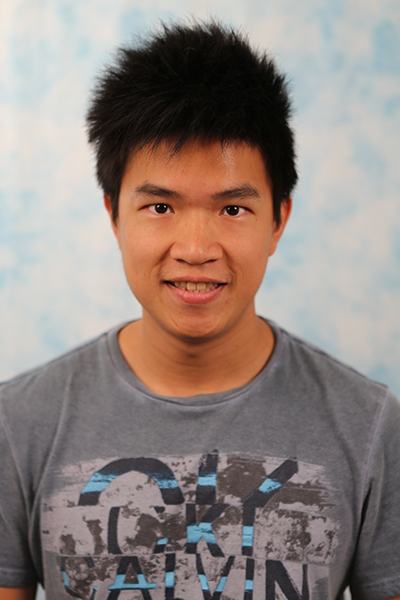Student Talks
Carnegie Mellon University
MSR Thesis Talk – Hans Kumar
Title: Multi-Session Periodic SLAM for Legged Robots Abstract: Methods for state estimation that rely on visual information are challenging on dynamic robots because of rapid changes in the viewing angle of onboard cameras. In this thesis, we show that by leveraging structure in the way that dynamic robots locomote, we can increase the feasibility [...]
Learning to Compose Hierarchical Object-Centric Controllers for Robotic Manipulation
Abstract: To perform manipulation tasks in the real world, robots need to operate on objects with various shapes, sizes and without access to geometric models. It is often infeasible to train monolithic neural network policies across such large variance in object properties. Towards this generalization challenge, we propose task-axis controllers, which are defined relative to [...]
Carnegie Mellon University
MSR Thesis Talk: Eagle Dapeng Zhao
Title: Predicting Human Trajectories by Learning and Matching Patterns Zoom Link: https://cmu.zoom.us/j/93356993095?pwd=Nzd3a09PbG9mVkV5blFVaU5nRk1GQT09 Abstract: As more and more robots are envisioned to cooperate with humans sharing the same space, it is desired for robots to be able to predict others' trajectories to navigate in a safe and self-explanatory way. We propose a Convolutional Neural Network-based approach [...]
Causal Reasoning in Simulation for Structure and Transfer Learning of Robot Manipulation Policies
Abstract: Real-world environments, such as homes, hospitals, and restaurants, often contain many objects that a robot could possibly manipulate. However, for a given manipulation task, only a small number of objects and object properties may actually be relevant. This talk presents CREST (Causal Reasoning for Efficient Structure Transfer), our approach to learn the relevant state [...]
Grasping Transparent, Specular, and Deformable Objects
Abstract: A large body of research exists on grasping for objects with ideal properties like Lambertian reflectance and rigidity. On the other hand, real-world environments contain many objects for which such properties do not hold, such as transparent, specular, and deformable objects. For such objects, new approaches are required to achieve the same level of [...]
Carnegie Mellon University
Auto-generated Manipulation Primitives
Abstract: The central theme in robotic manipulation is that of the robot interacting with the world through physical contact. We tend to describe that physical contact using specific words that capture the nature of the contact and the action, such as grasp, roll, pivot, push, pull, tilt, close, open etc. We refer to these situation-specific [...]
Carnegie Mellon University
Learning 3D Registration and Reconstruction from the Visual World
Abstract: Humans learn to develop strong senses for 3D geometry by looking around in the visual world. Through pure visual perception, not only can we recover a mental 3D representation of what we are looking at, but meanwhile we can also recognize where we are looking at the scene from. Finding the 3D scene representation [...]
Carnegie Mellon University
Development of an Agile and Dexterous Balancing Mobile Manipulator Robot
Abstract: The proposed thesis work focuses on the design and control of a new unique agile and dexterous mobile manipulator, the Carnegie Mellon University (CMU) ballbot. The CMU ballbot is a human-sized dynamically stable mobile robot that balances on a single ball. We present the development and integration of a new pair of seven-degree-of-freedom (7-DOF) [...]
Carnegie Mellon University
MSR Thesis Talk: Shengcao Cao
Title: Efficient Model Performance Estimation via Feature Histories Abstract: An important step in the task of neural network design, such as hyper-parameter optimization (HPO) or neural architecture search (NAS), is the evaluation of a candidate model's performance. Given fixed computational resources, one can either invest more time training each model to obtain more accurate estimates [...]
Carnegie Mellon University
MSR Thesis Talk: Steven Lee
Title: Learning to Represent and Accurately Arrange Food Items Abstract: Arrangements of objects are commonplace in a myriad of everyday scenarios, such as decorations at one’s home, displays at museums, and plates of food at restaurants. An efficient personal robot should be able to learn how to robustly recreate an arrangement using only a few [...]





